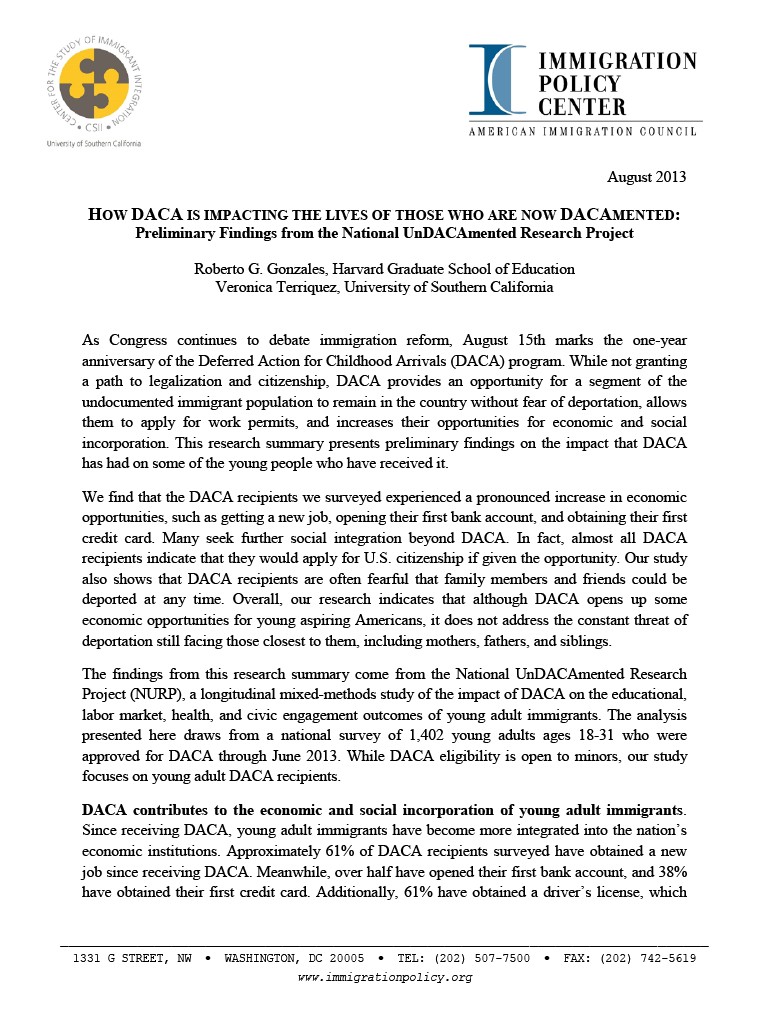
August 15, 2013
By Roberto G. Gonzalez and Veronica Terriquez
Please note: reports dated earlier than June 2020 were published under our previous names: the USC Program for Environmental and Regional Equity (PERE) or the USC Center for the Study of Immigrant Integration (CSII).
On the one-year anniversary of USCIS’ implementation of the Deferred Action for Childhood Arrivals (DACA) program, the Immigration Policy Center and the Center for the Study of Immigrant Integration released early findings from the National UnDACAmented Research Project (NURP)—a longitudinal mixed-methods study of the impact of DACA on the educational, labor market, health, and civic engagement outcomes of young adult immigrants.
The research found that DACA was increasing opportunities for economic and social incorporation for its recipients, and many seek further social integration beyond DACA. In fact, almost all DACA recipients indicate that they would apply for U.S. citizenship if given the opportunity. The study also showed that DACA recipients are often fearful that family members and friends could be deported at any time.
Overall, the research indicated that although DACA opens up some economic opportunities for young aspiring Americans, it does not address the constant threat of deportation still facing those closest to them, including mothers, fathers, and siblings.



